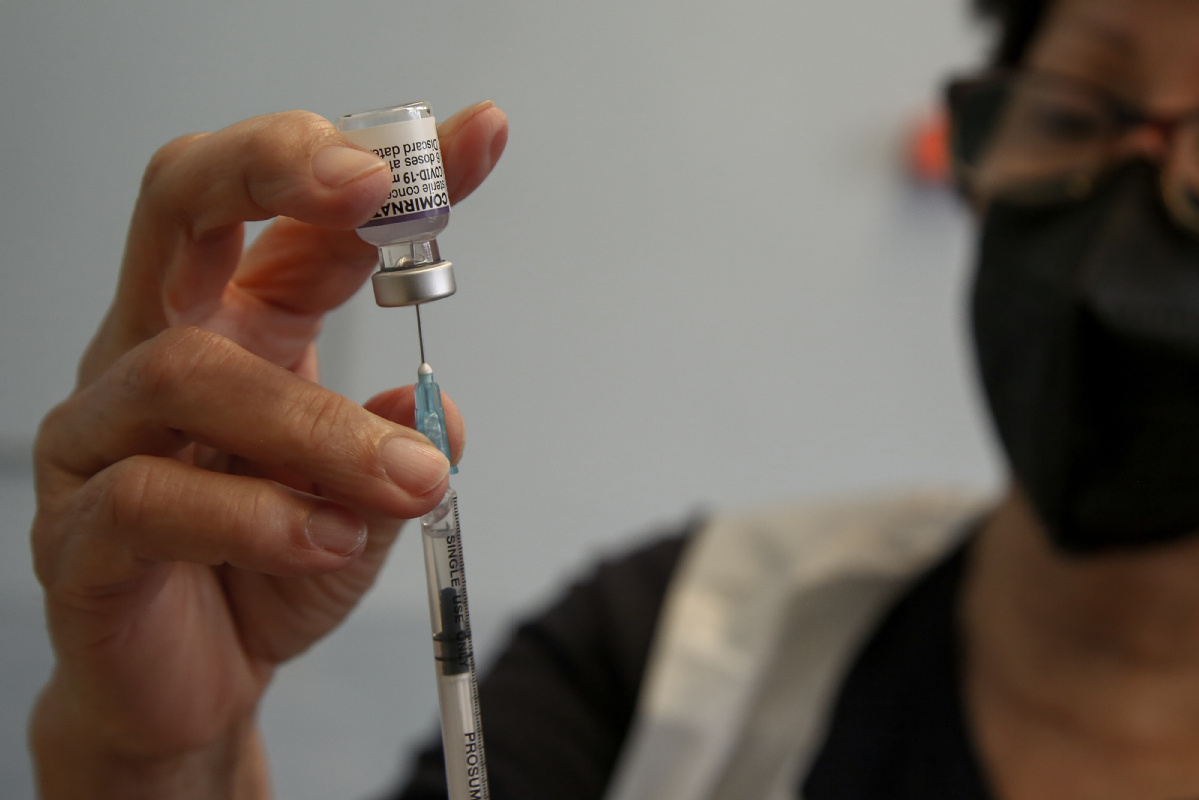One in 10 UK children unprotected against measles
By Angus McNeice in London | chinadaily.com.cn | Updated: 2022-02-01 23:14

Around one in 10 children starting school in the United Kingdom is unprotected against measles, after COVID-19 pandemic disruption led to a dip in vaccination rates.
Coverage of the MMR, or measles mumps and rubella, vaccine has fallen below 90 percent in two-year-old children and below 85.5 percent in five-year-olds, the lowest levels in a decade.
The latter figure is well below the 95 percent threshold that the World Health Organization says is needed to prevent outbreaks and eliminate measles.
"Measles is highly contagious and can be dangerous, and it is very concerning to see falling levels of uptake for the MMR vaccine," said UK Vaccines Minister Maggie Throup.
The UK Health Security Agency, or UKHSA, says that the worrying decline in vaccination levels began in March 2020, when the UK first went into lockdown and doctors' surgeries significantly limited in-person appointments.
UKHSA said that many parents may have been unaware that MMR immunization appointments have been available throughout the pandemic. The jab is first offered to children in the UK when they turn one, and again at the age of three-and-a-half.
Rates of measles and mumps have fallen significantly over the last two years, likely because of lockdowns and social distancing measures. But experts are concerned that the diseases may now rebound in the UK, where most pandemic-related restrictions have been lifted.
"The widespread lifting of COVID-19 restrictions means there is a very real possibility that we will see a bounce back of these diseases, with perhaps even higher levels than immediately before the pandemic," said David Elliman, a consultant pediatrician and Great Ormond Street Hospital.
The UKHSA has launched a campaign to encourage parents to seek out MMR immunization for their children, but Elliman argues that this effort is too narrowly focused.
"The new MMR immunization drive is very welcome, but needs to be extended to all childhood vaccines," he said, adding that whooping cough and meningitis also pose a threat to the young.
Before the invention of a measles vaccine in 1968, the disease led to major epidemics every two to three years, causing an estimated 2.6 million deaths annually, according to the WHO.
Global vaccine drives have greatly reduced the impact of measles, particularly in developing regions, where the mortality rate linked to the disease is disproportionally high. It is estimated that measles vaccines prevented 20.4 million deaths between 2000 and 2016.
























